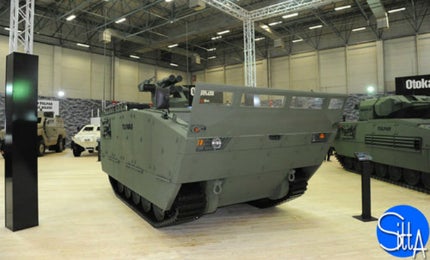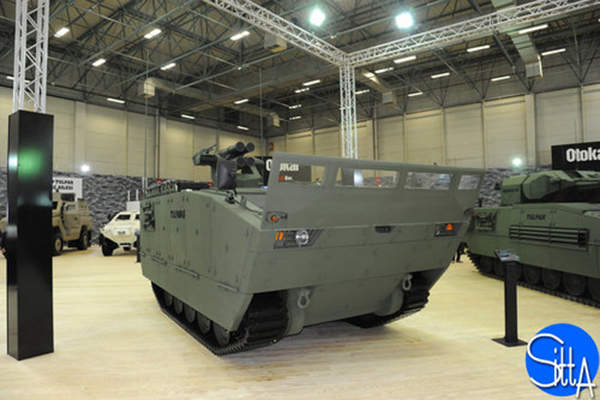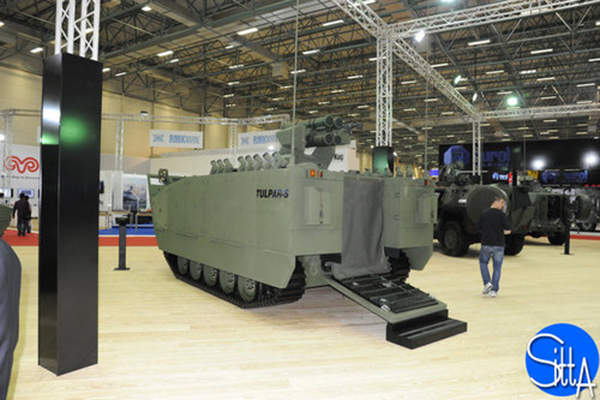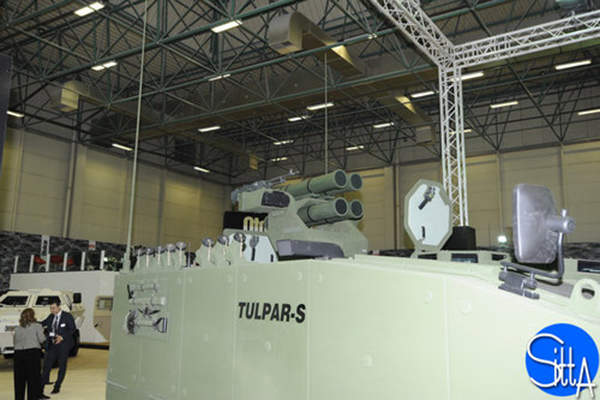
The Tulpar-S multi-purpose, tracked armoured combat vehicle was unveiled at the IDEF 2015 International Defence Industry Fair in Istanbul, Turkey, in May 2015.
It is an enhanced version of the Tulpar infantry fighting vehicle that was introduced in May 2013 for the Turkish Armed Forces.
The new-generation vehicle features amphibious characteristics and a high payload capability. It can be integrated with different mission systems to meet the future operational and mission needs of the land forces.
Its mission variants include troop transport, combat infantry, tank, support, maintenance, troubleshooting and ambulance.
The Tulpar family of tracked armoured vehicles was developed by Otokar Otomotiv ve Savunma Sanayi (Otokar), a light armoured tactical vehicle designer and manufacturer based in Turkey.
Design and features of Tulpar-S armoured combat vehicle
The Tulpar-S vehicle features a steel hull and flexible architecture. Equipped with rubber tracks, the vehicle offers improved traction and superior mobility on uneven surfaces.
The tactical vehicle measures 5.7m long, 2m high and 2.9m wide, and has a combat weight of 15t. Its large internal volume creates comfortable seating for up to ten personnel including a driver, commander and a gunner.
Standard equipment installed in the armoured vehicle include a radio, internal speech system, control screen, air conditioning unit, automatic track-tensioning system and a pallet clamping device.
The vehicle can be optionally installed with an auxiliary power unit and a heating system.
Armament and protection systems
Tulpar-S can be armed with different weapon systems, including Aselsan-designed anti-tank missile launching system (AT MLS), Kornet-E anti-tank guided missiles (ATGMs), and a 7.62mm co-axial machine gun.
Smoke grenade launchers, mounted on both sides of the turret, provide self-protection for the troops.
The armoured vehicle offers enhanced protection against chemical, biological, radiological and nuclear (CBRN) incidents. Anti-blast seats protect occupants from bomb and mine explosions, and improvised explosive device (IED) threats.
The Tulpar-S vehicle’s protection features also include a life support and fire extinguishing system, as well as an automatic fire suppression and detonation system.
Observation and fire control of Tulpar-S
The Tulpar IFV is designed primarily to safely transport infantry to the battlefield.
The commander’s sighting system consists of eight-piece periscopes, whereas the driver is provided with three periscopes for enhanced situational awareness.
Rear-mounted daylight and thermal cameras provide increased observation and situational awareness of the battlefield during day and night.
The onboard command and control system and combat information systems provide tactical intelligence and fire-control data. A global positioning system enables operators to track the exact location of the vehicle.
Engine
The Tulpar-S armoured tactical vehicle is powered by a Cummins diesel motor, which has a generating capacity of more than 280kW. The engine is coupled to an Allison automatic transmission system that provides improved steering and control.
Suspension is provided by dampers and twisted shaft. The vehicle is installed with a 24V DC electrical system and maintenance-free batteries.
Tulpar-S armoured tactical vehicle performance
The tracked armoured vehicle offers a speed of more than 70km/h and a range of 500km. It has the ability to climb grades of 60% and side slopes of 40%, and can negotiate vertical obstacles of 0.75m and cross trenches of 1.9m.
The vehicle is also capable of operating on rugged terrains under varying climatic conditions.
The Global Armoured Vehicles and Counter IED Vehicles Market 2011-2021
This project forms part of recent analysis and forecasts of the Global Armoured Vehicles and Counter IED Vehicles Market available from business information platform Strategic Defence Intelligence.






